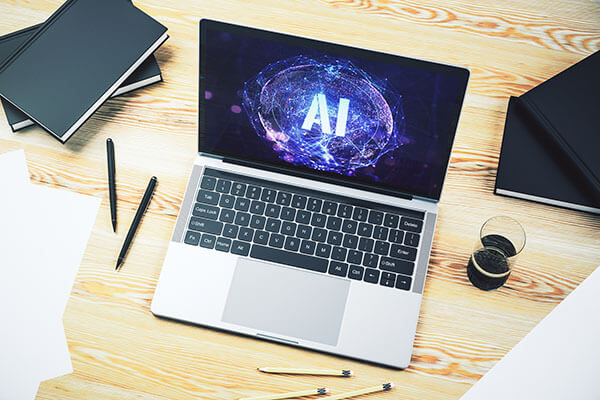Leveraging AI and Machine Learning for IT Operational Efficiency
Employee Insights, Employer Insights

As IT environments grow more complex, the pressure to keep systems efficient, secure, and responsive is higher than ever. Traditional monitoring and maintenance strategies can often fall short in keeping up with today’s fast-paced, data-heavy infrastructures. That’s where artificial intelligence (AI) and machine learning (ML) come in. These technologies are quickly becoming essential tools for IT professionals looking to streamline operations, automate repetitive tasks, and proactively prevent system failures. Here are some of the ways AI and ML are reshaping IT operations:
Streamlining IT Workflows with Intelligent Automation
AI and ML can automate many time-consuming IT tasks, freeing up teams to focus on more strategic initiatives. From user access management and software patching to incident ticket routing and log analysis, AI-powered systems can handle high-volume, repetitive work with speed and consistency.
For example, AI-driven service desks can automatically categorize and prioritize support tickets, suggest fixes based on historical data, or even resolve common issues without human intervention. Tools like AIOps (artificial intelligence for IT operations) analyze massive amounts of telemetry data to detect anomalies, correlate events, and initiate automated remediation, all without manual input.
This type of automation not only reduces operational overhead but also improves response times and minimizes human error, leading to a more reliable and resilient IT environment.
Optimizing Resource Allocation and System Performance
One of AI’s most valuable applications in IT is its ability to optimize resource usage. By analyzing historical and real-time data, machine learning algorithms can predict server load patterns, storage needs, or network traffic spikes. This enables IT teams to allocate computing resources dynamically, minimizing downtime and avoiding overprovisioning.
In virtualized environments or cloud platforms, AI tools can automatically scale services up or down based on actual usage, ensuring performance without unnecessary cost. This kind of intelligent workload management is especially beneficial in DevOps and cloud-native environments, where resource efficiency is key.
For IT professionals, this shift means working more closely with AI tools that recommend configuration changes, monitor KPIs, and assist with proactive infrastructure planning. Letting AI/ML lighten your load by taking on these responsibilities can free up time to work on projects where a human touch is essential.
Predicting and Preventing Issues Before They Happen
AI and ML excel at pattern recognition, making these tools ideal for predictive maintenance. By continuously analyzing logs, system behavior, and performance metrics, AI/ML can identify subtle trends that might indicate a future hardware failure, network issue, or security threat.
Instead of reacting to outages or disruptions, IT teams can use these insights to take preventive action such as replacing aging components, reconfiguring workloads, or mitigating risks before they escalate. Predictive analytics also support capacity planning, helping teams anticipate future demands and avoid scaling bottlenecks.
This can mean fewer firefighting scenarios for IT professionals and more opportunities to take a proactive role in keeping systems healthy and performant.
Using AI/ML to the Fullest
AI and machine learning are no longer futuristic buzzwords. They’re practical, powerful tools already enhancing IT operations across industries. By automating routine tasks, optimizing resource usage, and predicting issues before they occur, AI/ML are helping IT teams run smarter, faster, and more efficiently.
As a result, understanding and working alongside AI/ML tools is becoming a key skill set in the IT world. As more organizations integrate AI into their operations, they’re looking for tech professionals who can not only manage traditional infrastructure but also harness intelligent systems to improve outcomes and efficiency.
For example, roles such as site reliability engineer (SRE), cloud operations specialist, and infrastructure automation engineer are increasingly incorporating AI/ML experience into their job descriptions. Upskilling in these areas through hands-on experimentation, training courses, or certifications can make you a more competitive candidate in a rapidly evolving field.
For IT professionals, now is the time to embrace these technologies, not just to support your team, but to future-proof your career. Whether you’re exploring AIOps, experimenting with automation scripts, or pursuing certifications in AI integration, the future of IT operations is intelligent, and you’re in the perfect position to help lead it.
Looking for Your Next IT Role?
Whether you’re looking to leverage AI-powered IT operations or are focused on a different area in your career, we have a large range of tech job opportunities available. Check out our open IT jobs and apply today!
Share This Article
Contact Us
We’re here for you when you need us. How can we help you today?




